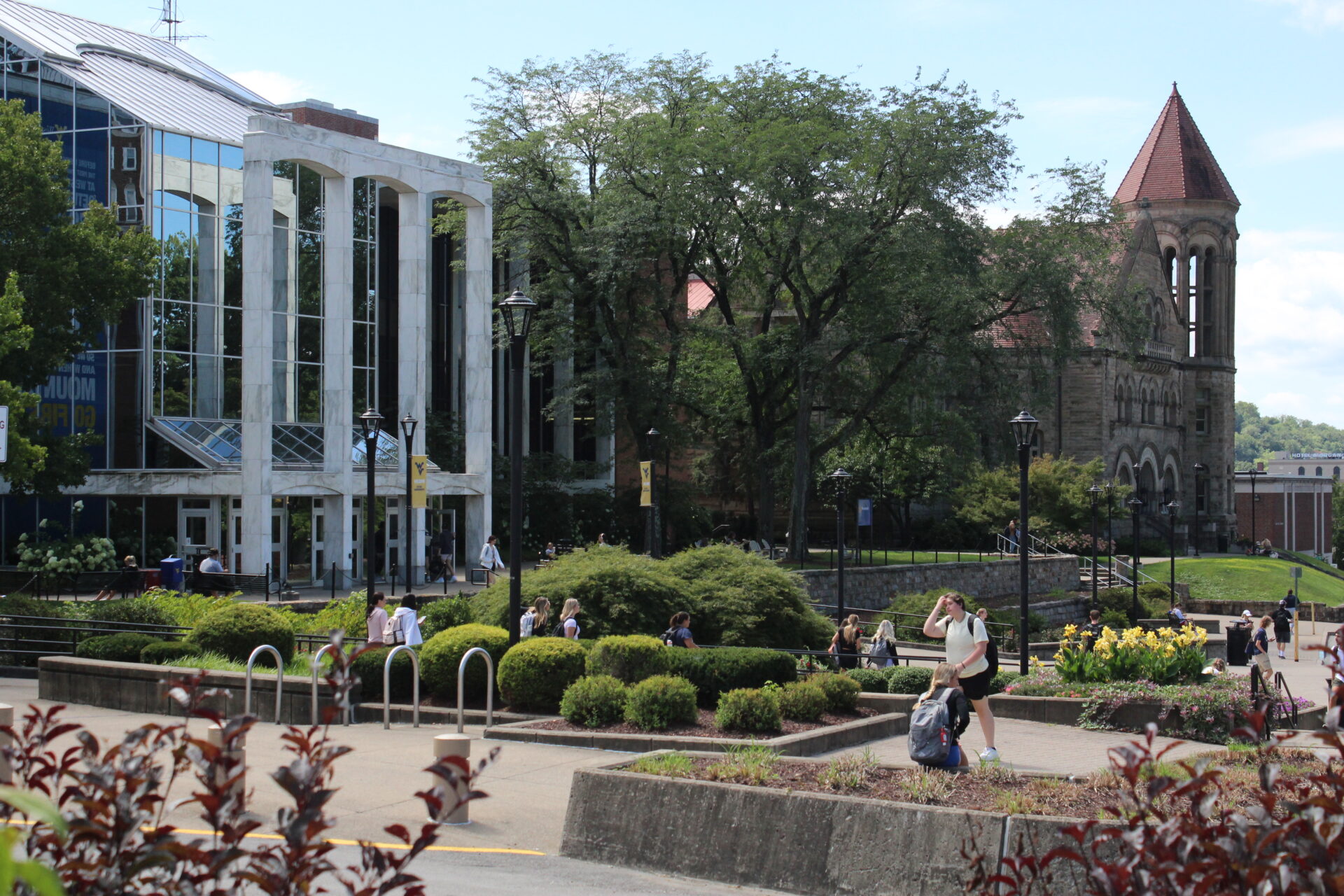During a Campus Conversation Zoom call Wednesday morning, West Virginia University announced more planned cuts as part of its continuing restructuring in the face of a $45 million budgetary shortfall.
WVU libraries will be asked to further reduce their budget by up to $800,000 as part of a review of 20 academic support units.
Unlike academic units, academic support units are not subject to the Board of Governors’ rules and will not have a chance to appeal.
Mark Gavin, the associate provost for academic, budget, facilities and strategic initiatives, said the cuts will come from reductions in staff positions without disrupting offerings.
“This sounds like a heavy lift for a unit that has already seen reductions, and it is,” he said.
In June, the university announced libraries would reduce spending on collections by 8 percent for fiscal year 2024. In the same announcement it was noted that the libraries’ personnel expenses have already been reduced by 7 percent.
“Under its current structure saving $800,000 from the personnel roster would be rather debilitating, but through restructuring efforts, the Dean of Libraries Karen Diaz is confident she can realize these savings without negatively impacting service levels for students, faculty and staff,” Gavin said.
The university’s recommendation also includes an evaluation of the physical footprint of the libraries, but Gavin said it does not include the closing of any library facilities.
The Teaching and Learning Commons, a unit that provides broad services including classroom support, multimedia production and course and curriculum design support, will have many of its functions moved to other units.
Several positions for instructional designers and multimedia specialists will be moved to the WVU Online unit, as well as micro-credentialing and its related positions. WVU Online’s own recommendation letter states “there is confusion regarding who is responsible and accountable for certain activities/services.”
The management of Zoom and related functions and associated personnel will also be transferred from the Teaching and Learning Commons to an as-yet unnamed unit.
WVU Press and the Smith Outdoor Economic Development Collaborative received recommendations to seek external funding. In the case of the Smith unit, the recommendation specifies “a plan to fully shift the unit’s salaries and operating expenses off of University general funds by FY 2026.”
The Women’s Resource Center and LGBTQ+ Center were among six support units that received a recommendation to continue to the current level of activity with no action. The full list of recommendations for all 20 support units can be found on the university Provost’s website.
Gavin apologized for what he called an “unfortunate and unavoidable” pause to the review of academic support units which began in May.
“The portfolio review process ended up demanding the full attention of our office so that we could deliver on the accelerated timeline set by the Board of Governors,” he said. “We had to pause our review of the ASU and recognize that in doing so, we created unrest and uncertainty.”
Reduction in Faculty
Administrators also briefly touched on details of the reduction in force (RIF) process for academic units that were approved to be cut by the Board of Governors on Sept. 15.
Faculty in the affected units will have until Sept. 30 to complete an “affirmation form” stating their desire to be considered for contract retention. WVU General Counsel Stefanie Taylor said faculty will learn whether the position has been eliminated no later than Oct. 16.
“The week of October 23rd, we will have due process hearings or meetings for certain types of faculty and classified staff that will be subjected to a RIF,” Taylor said. “On October 30, we’ll let folks know the results of those due process meetings and then December 1 is the last date by which you could sign and return a severance agreement if you were offered one.”
